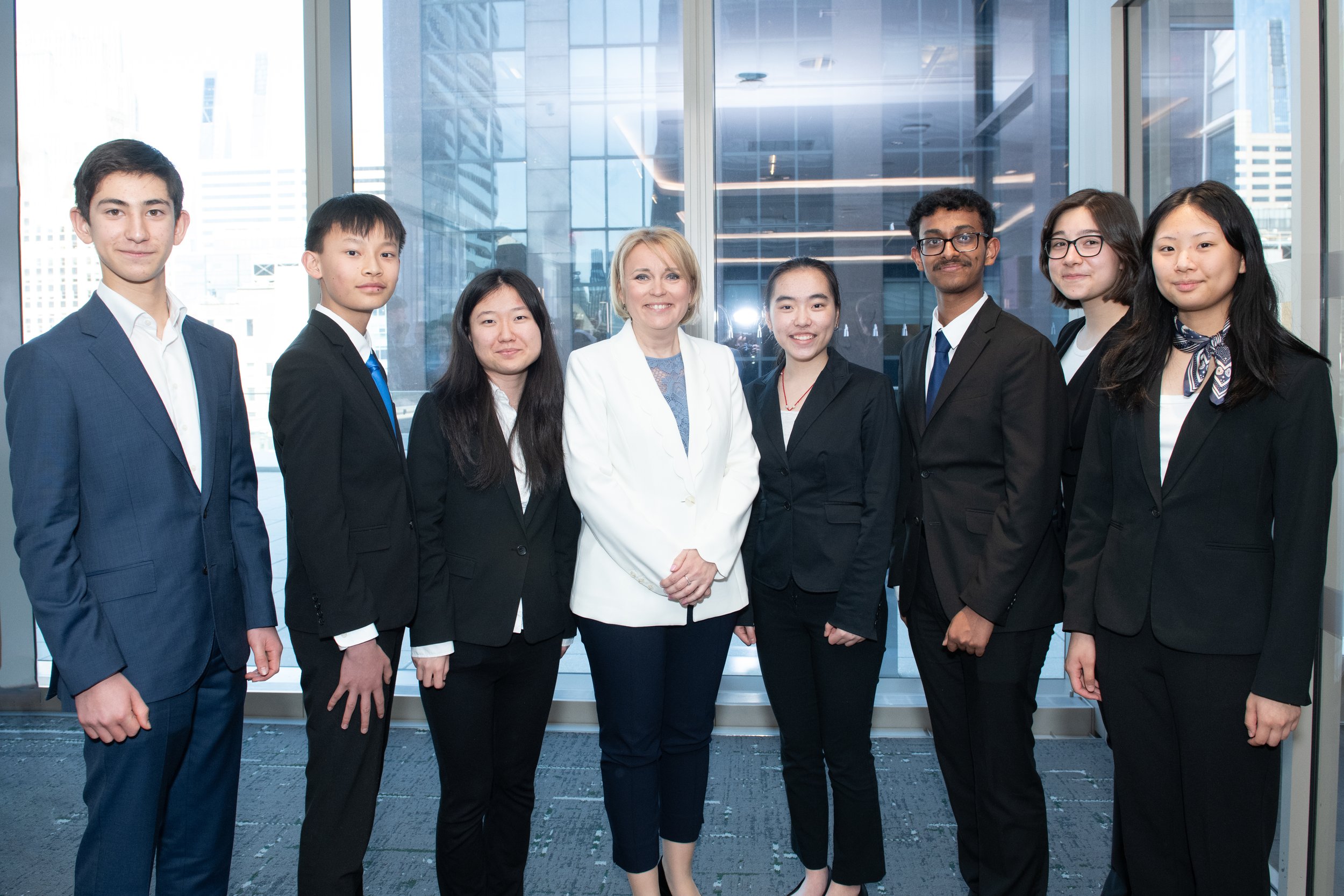In its first top-five finish since 2022, PHS’s Euro Challenge team earned fourth place at the Euro Challenge national competition on May 7. Euro Challenge, a competition co-funded by the European Union (EU), encourages students in the United States to learn about European Union economic policies by proposing solutions to realworld economic issues faced by an EU nation of the team’s choosing.
This year, the PHS team addressed issues in Lithuania regarding growth and competitiveness, such as wealth inequality, economic stagnation, and rural-urban disparities. Their solutions were evaluated on their creativity, effectiveness, and feasibility, criteria the team sought to meet with a particular solution which used AI to combat financial corruption.
“We [proposed] implementing ... an AI system that sifts through large amounts of data so [the system] can find suspicious tax filings. This is much faster and more efficient when it comes to identifying these false tax filings ... it decreases tax fraud, and the government is earning more,” said Helen Yu ’27, a member of the presentation panel at Nationals.
Euro Challenge consists of three rounds of competitions held in New York City: a preliminary round, then a semifinal and finals round. The team first presented a 15-minute slideshow on the country’s economic problems and their proposed solutions to a panel of judges, followed by a 10-minute Q&A on the team’s recommendations.
The judges of Euro Challenge are often leaders in finance and economics fields or are economic policy workers within the EU, which helped the team develop their solutions.
“They were the chief financial officers or advisors of major investment banks, so [there were] definitely a lot of people who were really specialized in this field,” said Yu. “And it was really interesting to see what they had to say and what questions they had, because it’s completely different from what high school students would tell you.”
The preparation for the competition starts early in the year, after seven of the applicants are selected for the team following tryouts for interested underclassmen. The team first researched the economic state of their chosen nation, then categorized the economic issues in the country under root causes and proposed solutions for these issues. Finally, the team heavily practiced the Q&A portion of the presentation, one of the most important parts for the team’s score.
“[The] captains would give me questions, and we’d have to come up with responses on the spot. Just having this as a routine really helped prepare us, because you could just take whatever question came at us, no matter if we really knew how to answer it or not. Having that practice also helped us be coherent as a group,” said Yu.
The team also had to practice soft skills like public speaking and effective communication to help them communicate their policies to judges.
“I think the most important skill is being able to speak in a conversational way because when the judges are asking you questions – you’re trying to convince them out of their concerns about your solutions, but you’re not debating people ... I had a bit of debate experience, but what Euro taught me was how to convince people instead of how to win an argument,” said Sebastian Balestri ’28, another member of the team.
Through the months that the team spent for preparation, Euro Challenge members built connections that will extend beyond the competition. They were able to capitalize on each other’s strengths to create a strong team for the national competion.
“[Before] becoming a captain, I had a lot of meaningful experiences interacting with my captains at the time. I think they really gave me a lot of insight into not only econ[omics] and topics pertaining to Euro Challenge, but also bigger things pertaining to personal life, especially with school and future tracks that you could take beyond that,” said Emma Liu ’26, current co-captain of the Euro Challenge team.
